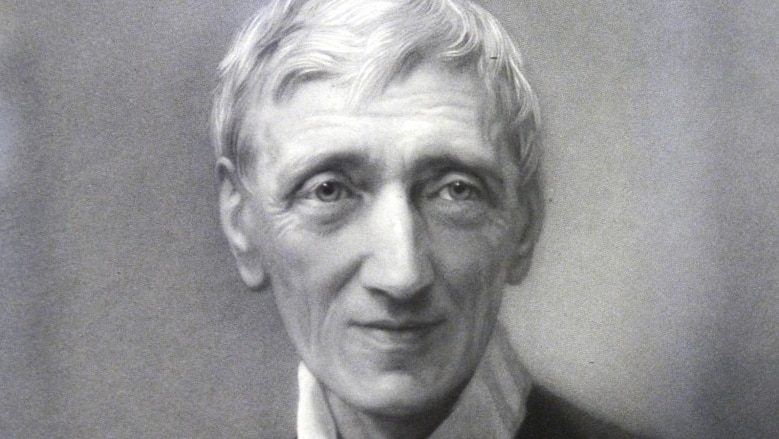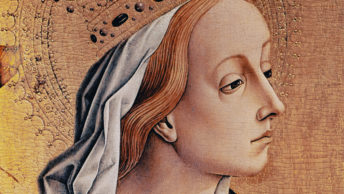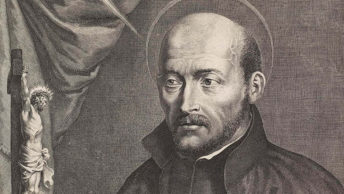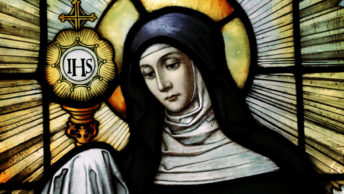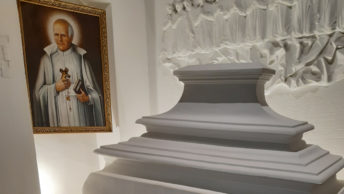On a summer day in the year 2000, Jack Sullivan was told by his surgeon that based on scans of his spine, surgery would be necessary to repair it. Later that day, dejected and suffering from intense pain, he tuned into a television program on the life of Cardinal John Henry Newman. Years later, he recalled that at the time, I knew something about Newman- not much, but that he was a convert, a brilliant man, who preached and wrote about the influence of God in everyday life, in a very common sense and rational way. At the end of that program, thinking that perhaps there was a divinely-inspired reason he had tuned into the broadcast, he wrote down a message that scrolled across the screen asking that all favors received from Cardinal Newman’s intercession be made known to the Postulator of his Cause for Canonization. And then, he began to pray for Cardinal Newman’s intercession. The next morning, he awoke with no pain.
Over the next year, Sullivan remained free of pain until the 15th of August 2001 when he was admitted to a Boston hospital and underwent spinal surgery. Shortly thereafter, he received the disappointing news that his recovery and ability to walk might take a year. While this was a setback, he was most upset because the upcoming year was to be his final year of seminary studies prior to ordination as a permanent deacon. And so, he once more turned to his holy friend and prayed:
Please Cardinal Newman, help me to walk so that I can return to classes and be ordained.
After his heartfelt prayers were completed, He suddenly felt heat all over, very warm and very intense, which lasted for a long time. With God’s peace and joy now covering him from head to toe, he had the confidence that he could walk. And with nurses and medical staff watching, he did! Eight years later, on July 3, 2009 Pope Benedict XVI announced that his healing was the miracle leading to Cardinal Newman’s beatification in England on September 19, 2010, at which Sullivan served as deacon and proclaimed the Gospel with the Pope as celebrant. (Adapted from: BBC News, “Papal Visit: Cardinal Newman’s Miracle Cure” and Deacon Jack Sullivan’s website)
In recounting this miracle—and the countless others that have occurred throughout history, I wonder how many of us stop to consider just exactly what a miracle is. According to the Catholic Encyclopedia, “God’s power is shown in miracles either directly through His own immediate action, or mediately through creatures as means or instruments.”With the former, we can go back to the Book of Genesis and the story of creation: God willed it, and so it was. With the latter, such as the unexplainable healing of Deacon Sullivan, it may be said that God permits certain other miracles to bring about a greater good than to just the person who has been healed. Others are also impacted by the miracle. In Sullivan’s case, the miracle did not simply heal him. Did you know that today Deacon Jack Sullivan not only gives talks on the life of Saint John Henry Newman but also conducts regular healing services that allow him to heal others, as well?
When we speak of miracles, what is the word that Jesus gives us? In the Gospel of Mark (7:31-37), Jesus encounters a deaf man with a speech impediment. While standing in his presence, Jesus speaks a powerful word to him: Ephphatha. This Aramaic word means: Be opened! And of course, this man’s ears were opened and his speech impediment was removed.
But were you aware that this same word that Jesus spoke to the deaf man is the same word He speaks to us—each day of our lives—so that we might truly hear—and become aware of God’s actions in our lives?
To echo Saint John Henry Newman, who preached and wrote often about God’s influence in our daily lives, the great Jesuit paleontologist, Fr. Pierre Teilhard de Chardin, once noted that: “God is not remote from us. He is at the point of our pen, our pick, our paintbrush, our needle — and our hearts and thoughts.”
This insight is very important because when most of us think of miracles, we have a tendency to focus exclusively upon miracles like the Curing of the Deaf Man or that which unfolded for Deacon Jack Sullivan. Given this, we are tempted to remark: “There are no miracles like that in my life.”
But is this true? If we look closer, can we not see the daily miracles that God performs in our midst—-within our families and many friendships? If not, it is though we have attended a birthday party and refrained from eating a slice of the birthday cake. We miss out on the reality that God loves us so much that He walks with us at every moment of our lives and constantly desires friendship and relationship with us. If you are unsure about this, listen to what the Prophet Isaiah (35:4-7) declares about God’s eternal love for us:
Say to those whose hearts are frightened, be strong, fear not! Here is your God, he comes with vindication; with divine recompense, he comes to save you.
And so, we ask: Do we see God’s intimate actions in our lives? Or do we think it mere coincidence when a friend suddenly calls us that we haven’t heard from in years? This happened to me just yesterday! Or do we not think it a miracle when a mother and father cooperate with God in the conception and birth of a new child? A priest once told me that he was visiting a couple at their home and holding their newborn infant when the mother apologized for not bringing him coffee. He told her that in allowing him to hold her baby, she brought him more joy than he had experienced in a long time. Or maybe it is something that we possess such as an ear to hear another person’s story, or a material good that will satisfy another person’s most pressing need? Or perhaps it is the way the Holy Spirit works through us to communicate an insight of God to another person? Years ago, I remember standing with a neighbor one day when the first words out of my mouth were: Have you been to Mass recently? After those words had left my mouth, I thought: There goes that relationship. But a few days later, she told me that my words were very powerful and that she hadn’t been to Mass in a long time, but that she now intended to do so.
In closing, we might ask what we should make of miracles? First, we should remember that miracles are God’s domain and His ways are not our ways. Second, that while some of us desire miracles that will make their way to the Congregation for the Causes of Saints, we should be content in knowing that each one of us is a miracle made by God’s own hand and that He has created us for a special purpose. This week, let’s ask our dear Lord how we might assist Him in creating miracles for others.

